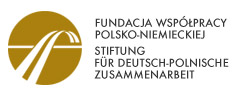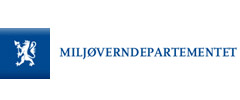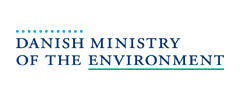Media Tour: Green Energy against Climate Change in Leningrad Region
Green Energy against Climate Change
19.04.2010 |Climate Secretariat RSEU
The media tour attracted 25 journalists from newspapers, magazines and three TV channels (TV-100, NTV and 5th Federal Channel). Climate change is a global problem. Significant steps are being made for solution at both national and international levels. The reason of global warming is likely to be anthropogenic emissions of greenhouse gases in the XX century. And it is fuel energy, using coal, oil and gas, which is responsible for these emissions most. Russian Socio-Ecological Union is attentively monitoring attempts to solve the problem at international, national and local levels. President Medvedev during the climate talks in Copenhagen, noted that improvements in energy efficiency and renewable energy need to be addressed regardless of the climate agreement "... for one simple reason: for us (Russia) it is profitable itself." As a part of the media-tour in St. Petersburg & Leningrad region on April 8, journalists saw wind turbines in the Krasnoya Selo town, a boiler, operating on wood waste in the timber proceeding enterprise in Lomonosov town, and energy efficient houses in the cottage village Kissolovo.
All of these projects contributed to, at local level, reducing greenhouse gas emissions, and are implemented by business without state support. Obviously, if there is such support, results may be even more significant. Alexander Entel, president of the Krasnoe company, preferred to install a wind turbine only for idealistic reasons: energy grid company refused to provide his tile facility with additional electrical capacity. An used wind turbine was bought in Denmark for $15,000. More than $5,000 was spent on its transportation and installation. According to Entel, the 75-kilowatt wind turbine, set in 1990ies, returned the investment in in six years. Now the wind turbine is connected to the grid, and the Krasnoe pays the grid company for difference between the electricity used at the plant and the electricity generated at the windmill. "If we were allowed to install a windmill, for example, on the coast, where the wind is better, and send that electricity to the grid there, and then receive the same amount of electricity from the network here – for us it would be much more profitable", – says Entel.
A boiler of Finnish design, installed at the sawmilling company "Rusholz", burns wood waste, which previously was simply dumped. The boiler allows the company not only to heat their facility, but also to sell it to neighboring businesses. According to Viktor Gonchar, head of company's facility, today 90% of the sawmills have similar boilers. According to Gonchar, his company was a pioneer, and if it were not for such boiler, the company would not be able to survive in difficult economic circumstances. But the company plans further improvements: "Today's equipment does not allow to burn clean bark, the installation must be further developed", - says Gonchar. A 'passive house' is a form of energy-efficient homes, where heating costs are led to minimum. Director of the PassivHaus company Jury Gonyaev told the journalists that the idea to build a cottage village of energy-efficient houses emerged because of objective reasons: the village of Kissolovo is not supplied with gas. The task became the following: to build using German and Finnish technologies, houses, which require a minimum of electricity for heating. Houses are still under construction and should be assessed after the first winter, but, apparently, the problem is solved. In addition to efficient thermal insulations, they comprise a half-meter wall (concrete, foam, brick), a powerful foundation, special windows (large windows facing south), air recuperation system (warm air leaves the building, heating metal plates which heat cold air from the street, thus saving heat) and other technical innovations. "At minus 20 degrees Celsius outdoors, the warm house, if completely disconnected from the heat, loses only one degree of heat a day" - says Gonyaev, who as well will soon become one of the inhabitants of the cottage settlement.
For more information please contact RSEU Climate Secretariat: Olga Senova, Alexander Fedorov, Rashid Alimov, Ekaterina Uspenskaya rseu.climate@gmail.com +7 921 9117986, +7 812 6004211
--
RSEU Climate Secretariat
www.rusecounion.ru
Address: Grivtsova 10-5, St.Petersburg
190000 Russia
Tel/fax: +7 812 3156622 Tel.mob: +7 921 9117986
e-mail: rseu.climate@gmail.com
Related News
Meet the Winners of the Gender Just Climate Solutions Award at COP24
On the 70th anniversary of the Universal Declaration of Human Rights, we awarded Gender Just Climate Solutions Winners at the climate negotiations in Katowice, Poland
11.12.2018
Getting to the Future We Want
4-7 November, Brussels: European Environmental Bureau’s (EEB) Annual Conference
12.11.2018
What to expect from the climate talks that resumed in Bangkok this week?
COP24: second intersession of the climate change negotiations 2018, Bangkok, Thailand
07.09.2018
Application open for Gender Just Climate Solutions Award 2018!
WECF and partners invite you to participate in the 4th annual Gender Just Climate Solutions Awards
01.08.2018
Women and Gender Constituency Joint Statement On SB48
Real commitment to rights-based, gender-just solutions to climate change is imperative for the effective implementation of the Paris Agreement.
18.06.2018






































